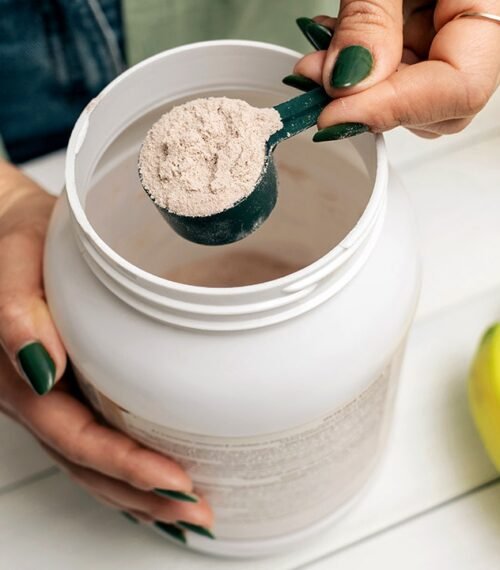SUNDAY, Sept. 7, 2025 (HealthDay News) — The use of alcohol, nicotine, marijuana, or other substances during pregnancy can have profound effects on a developing baby, even when the dangers are not immediately visible. That is the warning from Dr. Aliana Abascal, a psychiatrist with West Virginia University’s Department of Behavioral Medicine and Psychiatry, who emphasized that no level of substance use during pregnancy can be considered truly safe.
“Many substances are capable of harming a fetus, including those that people often assume are harmless, like marijuana,” Abascal explained. “Nicotine—whether it comes from traditional cigarettes or from vaping devices—has measurable effects on fetal development. Alcohol, methamphetamines, and heroin are also extremely dangerous.”
Her warning comes in advance of International Fetal Alcohol Spectrum Disorders Awareness Day on Sept. 9, a global event dedicated to highlighting the risks of prenatal alcohol exposure and advocating for prevention.
Substance Use in Pregnancy Remains Widespread
Despite ongoing public health campaigns, the use of drugs and alcohol during pregnancy continues to be a widespread issue in the United States. According to the U.S. Centers for Disease Control and Prevention (CDC):
- Nearly 14% of women report consuming alcohol while pregnant.
- About 8% admit to using illicit drugs during pregnancy.
- Around 7% report tobacco use while expecting. In West Virginia, the problem is particularly pronounced, with rates climbing as high as 25%.
Equally concerning, Abascal pointed to research showing that overdose deaths among pregnant and recently pregnant women tripled between 2018 and 2021, underscoring the intersection of the addiction crisis and maternal health.
Short- and Long-Term Consequences for Babies
The risks associated with substance use during pregnancy are both immediate and long-lasting. “Substance use during pregnancy can lead to miscarriage or fetal death, birth defects, growth restrictions, or premature delivery,” Abascal warned. “Mothers themselves face significant health concerns, and babies may suffer medical complications immediately after birth.”
Beyond those urgent issues, exposure in the womb can also increase the likelihood of long-term neurodevelopmental and behavioral problems, including intellectual disabilities, attention disorders, and difficulties with learning and social interactions.
Babies born to mothers who used alcohol, tobacco, or illicit drugs during pregnancy may also experience withdrawal symptoms after delivery. This condition, known as neonatal abstinence syndrome (NAS), often requires intensive medical care in the first weeks of life.
Not All Substances Pose the Same Risks
While many substances share overlapping dangers, some carry unique threats. For example:
- Nicotine and cocaine raise the risk of miscarriage. In cases of cocaine use, the fetus may also be at risk of death in the womb.
- Alcohol, nicotine, cocaine, and opioids are all associated with restricted fetal growth.
- Alcohol poses an especially severe risk, as it can damage the developing central nervous system. The result may be fetal alcohol spectrum disorders (FASD), a group of permanent conditions that include intellectual disability, behavioral challenges, and distinctive physical features.
Because of these differences, healthcare professionals urge expecting mothers to discuss any substance use openly with their doctors, so that proper monitoring and interventions can be provided.
The Importance of Early Intervention
For infants and children who were exposed to substances during pregnancy, early medical and behavioral interventions can make a significant difference. Pediatric care plays a vital role in detecting and addressing health or developmental challenges as soon as possible. In some cases, children may also need ongoing mental health support to help manage emotional or behavioral difficulties linked to early exposure.
“Timely care can improve outcomes, but the earlier the intervention, the better,” Abascal emphasized.
The Challenge of Quitting
While healthcare providers encourage pregnant women to stop using harmful substances, quitting is not always straightforward. Many women struggling with substance use also face mental health challenges, making recovery more complex.
“Roughly half of women who seek treatment for substance use disorders also meet the criteria for post-traumatic stress disorder (PTSD),” Abascal said. “These women are at heightened risk of experiencing physical and sexual abuse, which adds another layer of difficulty when it comes to treatment and recovery.”
Treatment approaches often include both behavioral therapies and, in some cases, medications. “Some treatments involve medications that may contain components of the very substance of concern,” Abascal explained. “For example, nicotine replacement therapy—such as patches or gum—can be used during pregnancy. While these treatments may have some impact on fetal development, the risks are significantly lower than those from continued smoking.”
Raising Awareness and Offering Hope
International Fetal Alcohol Spectrum Disorders Awareness Day aims not only to raise awareness but also to inspire prevention and support. Abascal and other experts stress that expecting mothers should not face stigma when seeking help, but instead be provided with compassionate, evidence-based care.
The message is clear: no amount of alcohol, nicotine, marijuana, or other illicit substances is safe during pregnancy. But with the right support systems in place, women can find pathways to healthier pregnancies and brighter futures for their children.















































































































